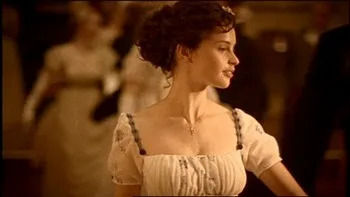Early reviews: What they said about ‘Emma’
- Jennifer Abella

- Mar 18, 2015
- 3 min read
Updated: Aug 26, 2020

With “Emma”, Jane Austen was unsure how the public would take to her heroine — whom she knew no one but herself would much like.
Now “Emma” is in the top 10 of at least one list of the 100 best novels of all time. But what did critics and readers think of it when it was first published? A quick glance at reviews from the period as well as letters from readers, writers and Jane Austen’s relatives and friends:
An unsigned review in the June 1816 Literary Panorama: “The story is not ill-conceived; it is not romantic but domestic …”
Monthly Review: “a strain of genuine natural humour …”
British Critic, July 1816: “an amusing, inoffensive and well-principled novel …”
Gentleman’s Magazine, September 1816: “… delineates with great accuracy the habits and the manners of a middle class of gentry, and of the inhabitants of a country village at one degree of rank and gentility beneath them. … if Emma be not allowed to rank in the very highest class of modern Novels, it certainly may claim at least a distinguished degree of eminence in that species of composition. It is amusing, if not instructive.”

Sir Walter Scott, Quarter Review: “Emma has even less story than either of the preceding novels. … The plot is extricated with great simplicity…. The author’s knowledge of the world, and the peculiar tact with which she presents characters that the reader cannot fail to recognize, reminds us something of the merits of the Flemish school of painting. The subjects are not often elegant, and certainly never grand; but they are finished up to nature, and with a precision which delights the
reader.”
Reader Lady Morley: I did not say that I did not like Emma — only said that I did not like it so much as Mansfield Park or Pride & Prejudice — nor more I do. Yet I think there is much of it that is admirable. … Her talking characters talk too much. The pages filled with Miss Bates & Mrs Elston wd. make up one of the volumes & that is more than can well be afforded. Still their conversations are certainly admirable.
Writer Maria Edgeworth: “There was no story in it.”
Irish poet Thomas Moore: It was “the very perfection of novel-writing.”
The Librarian of the Prince Regent: “It is gone to the Prince Regent [to whom the book was dedicated]. I have read only a few Pages which I very much admired — there is so much nature — and excellent description of Character in every thing you describe.”
And what did Austen’s relatives think? Jane jotted down opinions on the book; out of 43 opinions, 12 were negative, six wholly praised it and four said they thought “Emma” was the best work she’d published by then. But 17 said they still liked “Pride & Prejudice” more.
James and Mary Austen said they didn’t like it “as well as either of the 3 others. Language different from the others; not so easily read.” Mary’s cousin said it was “certainly inferior to all the others.”
Jane’s friend Anne Sharp had sharp words: She liked the book “better than MP. — but not so well as P. & P. — pleased with the Heroine for her Originality, delighted with Mr K — & called Mrs Elton beyond praise — dissatisfied with Jane Fairfax.”
Brother Frank: “Liked it extremely, observing that though there might be more Wit in P&P — & an higher Morality in MP — yet altogether … preferred it to either.”
Mrs. Austen: “Thought it more entertaining than MP, but not so interesting as P&P. No characters in it equal to Ly. Catherine & Mr Collins.”
Sources:
“Jane Austen: A Life,” Claire Tomalin
“Jane Austen’s Letters,” collected and edited by Deirdre Le Faye
“Jane Austen: The World of Her Novels,” Deirdre Le Faye








Comments